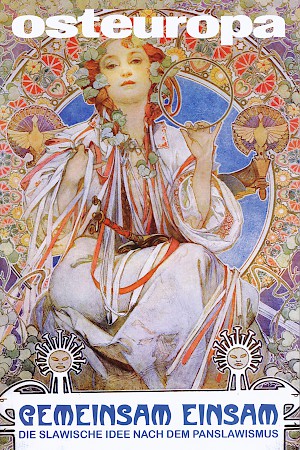Rise, Fall, Revival
The Lines of Development in Slavic Research
Deutsche Fassung
Abstract
For almost 200 years, German historiography assumed there existed some kind of unity of the Slavs. Among the Slavic peoples of East Central Europe by contrast, the idea of Slavic unity had already been replaced by national concepts of history during the 19th century. That Pan-Slavism had been transformed into a Great-Russian imperial idea also played a role in this process. After the expansion of the Soviet sphere of influence, Slavic studies in Eastern Europe and Western Europe flourished. Since the 1970s, and irreversibly since 1989, Slavic studies has been replaced by research grounded in structural and cultural history. In Russia and Belarus by contrast, Pan-Slavism has once again emerged on the ruins of the Soviet Union as the unity of the Eastern Slavs.
(Osteuropa 12/2009, pp. 263–272)



